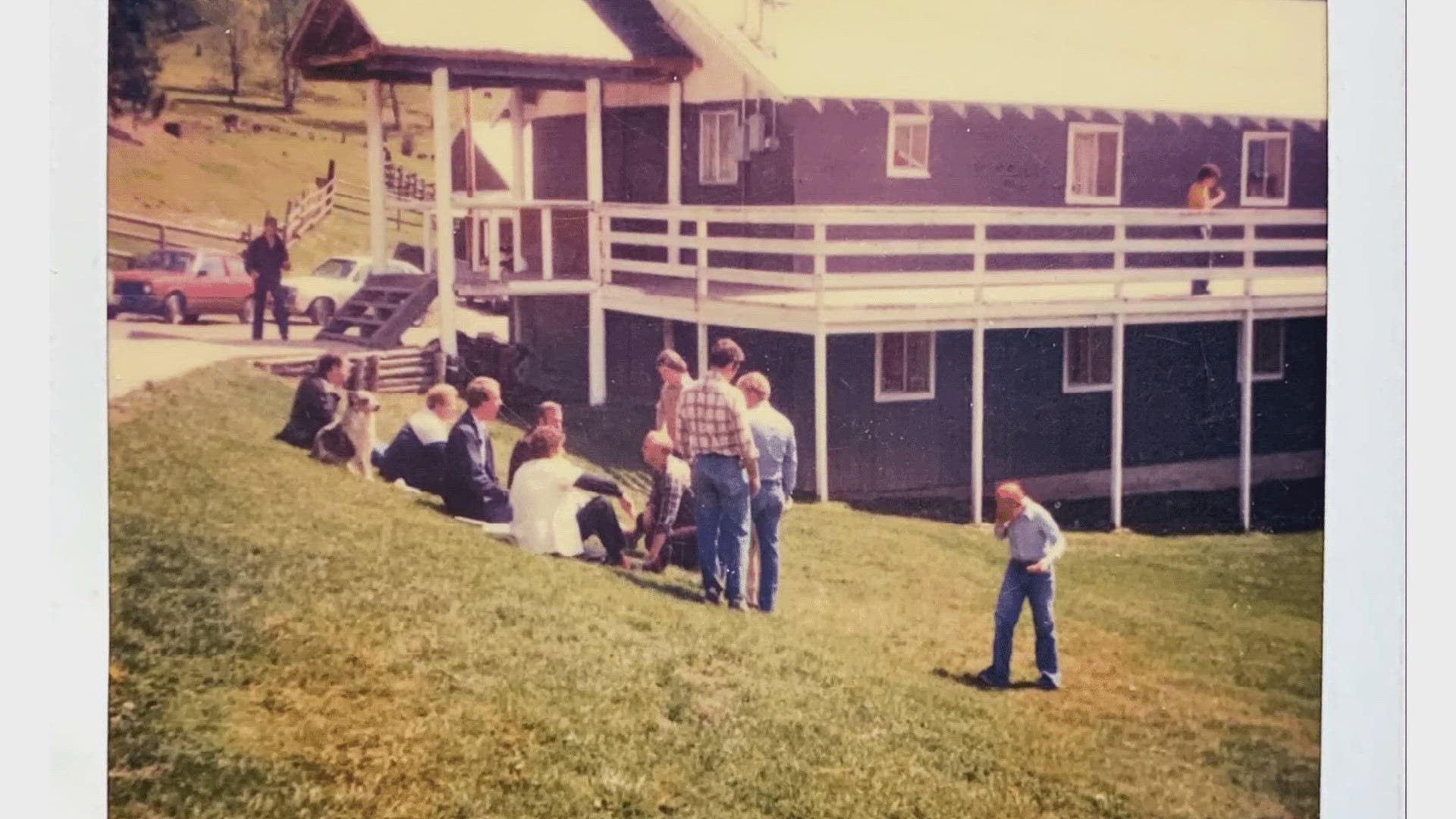TACOMA, Wash. — The state of Washington will pay $16.5 million in a recent landmark child abuse settlement. The money will go to victims of the J Bar D Boys Ranch.
The abuses date back decades in the 1970s and 1980s. The ranch was a group foster home for boys north of Spokane in Pend Oreille County. It was shut down in 1985, and nearly 40 years later survivors say they are finally getting some justice.
The settlement will go to 12 boys who said they were abused there and the lawsuit claimed the state failed to protect them.
“I came to the realization quickly that this wasn't like any other group home I had been at before,” said survivor Kelly McShane.
McShane was just 14 when he was sent to live at J Bar D ranch in 1983. His mother could no longer care for him and he became one of the dozens of boys ages 10 to 15 that lived there when they became custody of the state.
McShane said less than an hour after being dropped off, he suffered physical violence from the assistant director.
“Within the first 15 minutes after he perceived a slight, or disrespect towards him speaking to me. He threw me through a window,” McShane said.
Soon, he said he would suffer horrific physical and sexual abuse from older residents called junior staff and known as ‘the enforcers.’
“These were boys that were 17 to 18 that were privileged and had privileges in the J Bar D ranking system. They used rape, and sexual assault and torture as forms to get obedience and they didn’t seem to have a problem with it,” McShane said.
McShane said those who ran the ranch knew about the abuse and did nothing.
“You’re in a situation where you're just trying to stay alive and trying to not be raped, beaten, or tortured anymore,” McShane said.
The lawsuit was filed against the state, DSHS, and the Department of Children, Youth, and Families.
It said boys were also sexually abused by staff members.
It was something that McShane knew happened, he said after boys would go up the hill to another part of the ranch with an employee, they would go from having gregarious personalities to the rest of their time looking like someone took their soul away.
“Violence ruled the day that J Bar D and Reynolds Creek,” said Ian Bauer, a law partner at Pfau, Cochran, Vertetis, Amala, the law firm that took on the case.
Bauer said attorneys uncovered documents that as early as 1979 warned DSHS that children were being physically and sexually abused and for years did nothing and said legally the state was responsible for their care.
“They were aware of horrific sexual abuse at a J Bar D Boys Ranch being perpetrated by the staff and being perpetrated by older residents. The state never stepped up to protect the children at J Bar D. Instead they just kept putting more and more vulnerable children into the viper's nest,” Bauer said.
One of the first steps to closing the ranch happened in 1984 when DSHS appointed a new investigator to look into the claim, once he arrived at the facility testimony showed he said it needed to be shut down.
“Roy Harrington, when he was appointed in late 1984, learned immediately about what was going on at J Bar D. He took one foot on the ground out of that ranch and said no more. This is unacceptable,” Bauer said.
Attorneys said the state acted only after Pend Oreille County Sheriff Tony Bamonte reached out to the governor’s office after hearing complaints for years. A Judge’s special inquiry found widespread substandard care and abuse and the ranch shutdown in 1985.
Attorneys said J Bar D owner and staff psychologist Dave Goodwin embezzled at least $100,000 and that DSHS staff tipped him off to pending inspections and other information.
In a deposition testimony, Goodwin denied all allegations.
“There's no question that Dave Goodwin was aware of what was going on because he was trying to cover it up. He was assisted in that effort by people from the Department of Social and Health Services,” Bauer said.
“What happened at J Bar D is simply one home out of many. The state's reliance on group homes during this timeframe is one of the darkest chapters in our state's history,” Bauer said.
Bauer said no one ever faced criminal penalties for what happened to the boys on the ranch.
"It's egregious. There are never criminal penalties for anyone associated with J Bar D Ranch. There are never any type any criminal proceedings or any criminal sanctions of any kind. That's why the civil justice system is so incredibly important," Bauer said.
“The story had to be told because a lot of these boys aren't with us anymore. Some of them are so damaged that they may not be able to work a job, maybe not live a normal life,” McShane said.
McShane said sharing his story has helped him heal, and after nearly 40 years is starting to feel heard.
“These kinds of incidents stay with you for the rest of your life. There's never really closure there. As far as closing the chapter on this book of J Bar D, it kind of brings it to the end, all these years later. Finally, there's some sort of accountability, there's at least some sort of acknowledgment. That means a lot to me,” McShane said.

